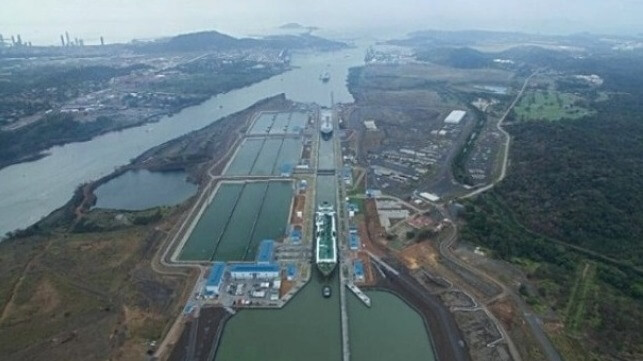LNG Terminal Planned for Mexico to Serve Ships at Panama Canal

With the number of ships using LNG continuing to grow and spurring demand, two U.S.-based companies partnered to launch a new small-scale LNG terminal in Salina Cruz, Mexico. According to the partners, GFI LNG and Pilot LNG, the project is designed with a focus on speed to market and will be strategically located to serve a key shipping market.
The Salina Cruz LNG JV will develop, construct, and operate the LNG bunkering and transshipment terminal which they anticipate will start operations in mid-to-late 2027. GFI and Pilot plan to commence front-end engineering and design development for the project this quarter. The partners anticipate a 12-to-18-month development and permitting timeline and anticipate announcing a Final Investment Decision (FID) in the second half of 2025. The team anticipates an approximate 36-month permitting and construction timeline.
The project design has been optimized to include modular, land-based liquefaction trains and straight-forward mooring and topsides modifications on the newly expanded breakwater in the Port of Salina Cruz. At full build-out, the facility is anticipated to produce 600,000 gallons of liquified natural gas(LNG) per day, or roughly 0.34 million metric tonnes per annum (MTPA).
With speed-to-market as a goal, they have decided to use an FSU ranging in capacity of 50,000 - 140,000 cbm for LNG storage. The plant will use domestic Mexican gas supplied for the Veracruz gulf region and has the advantage of identified pipeline capacity and gas supply while using a proven liquefaction technology.
GFI, a Houston-based company, has more than 20 years of experience in Mexico. Pilot LNG, also based in Houston, is a clean energy infrastructure developer, also has projects in development including the Galveston LNG Bunker Port, a small-scale LNG bunker terminal, and the Cork LNG FSRU import terminal which will be located in the Whitegate area at the Port of Cork, Ireland.
The Mexican site the company emphasized will provide LNG marine fuel deliveries at the Pacific entrance to the Panama Canal and also deliver LNG to the ports of Los Angeles and Long Beach in Southern California. In addition to the marine market, they look to serve the Central American power markets and trucked volumes into southwestern Mexico.
No comments:
Post a Comment